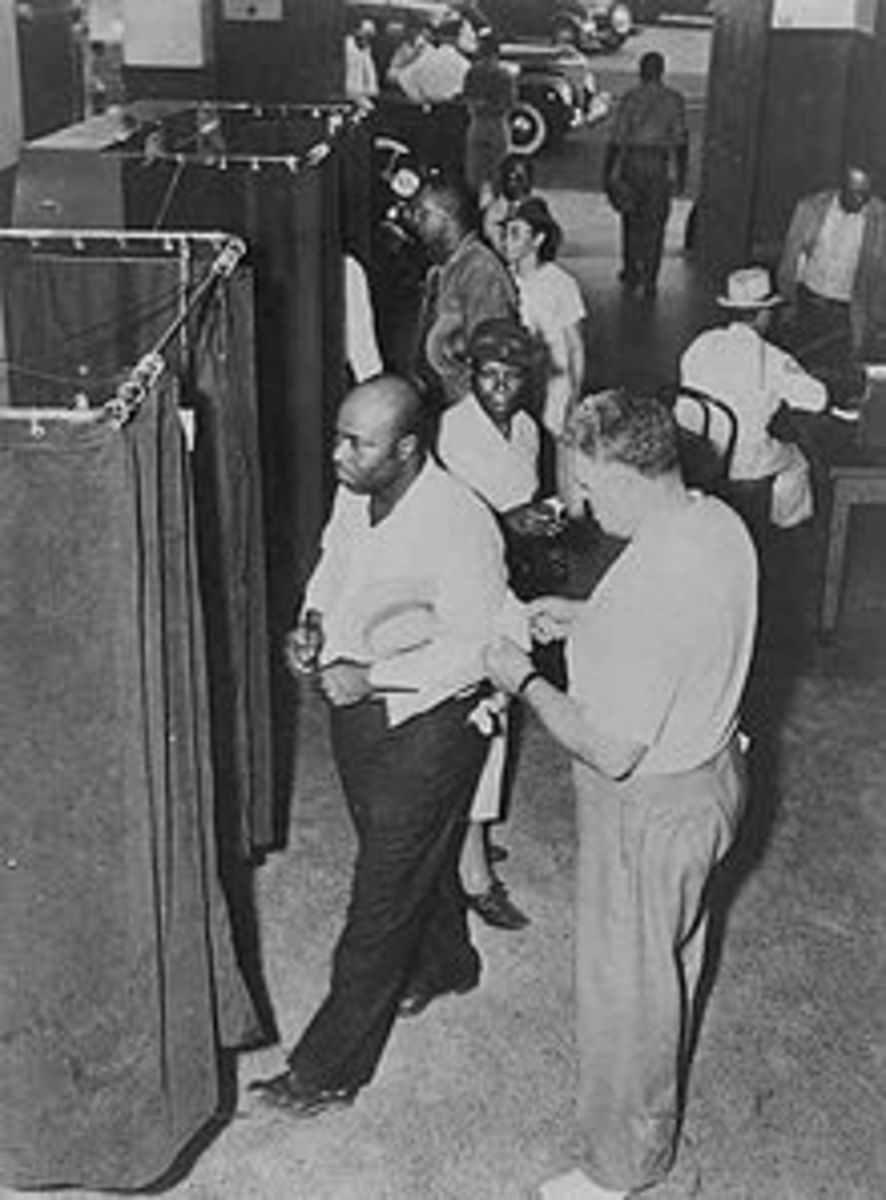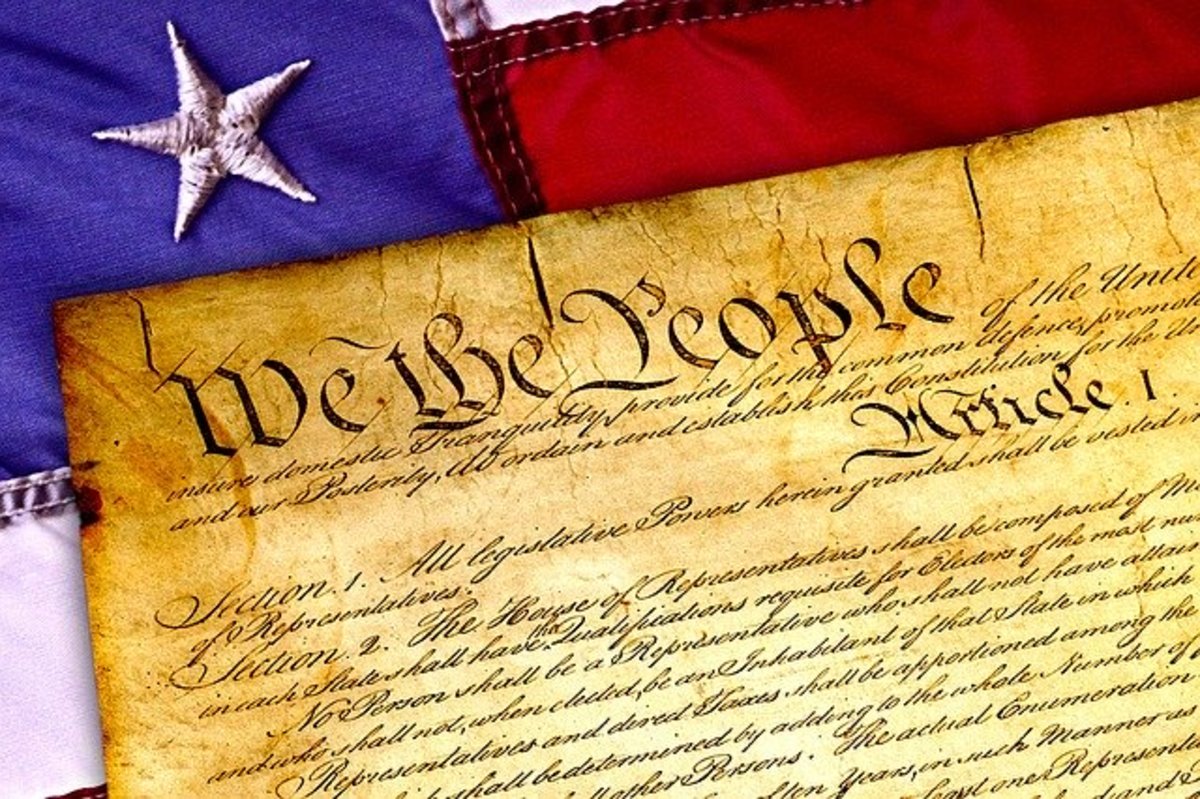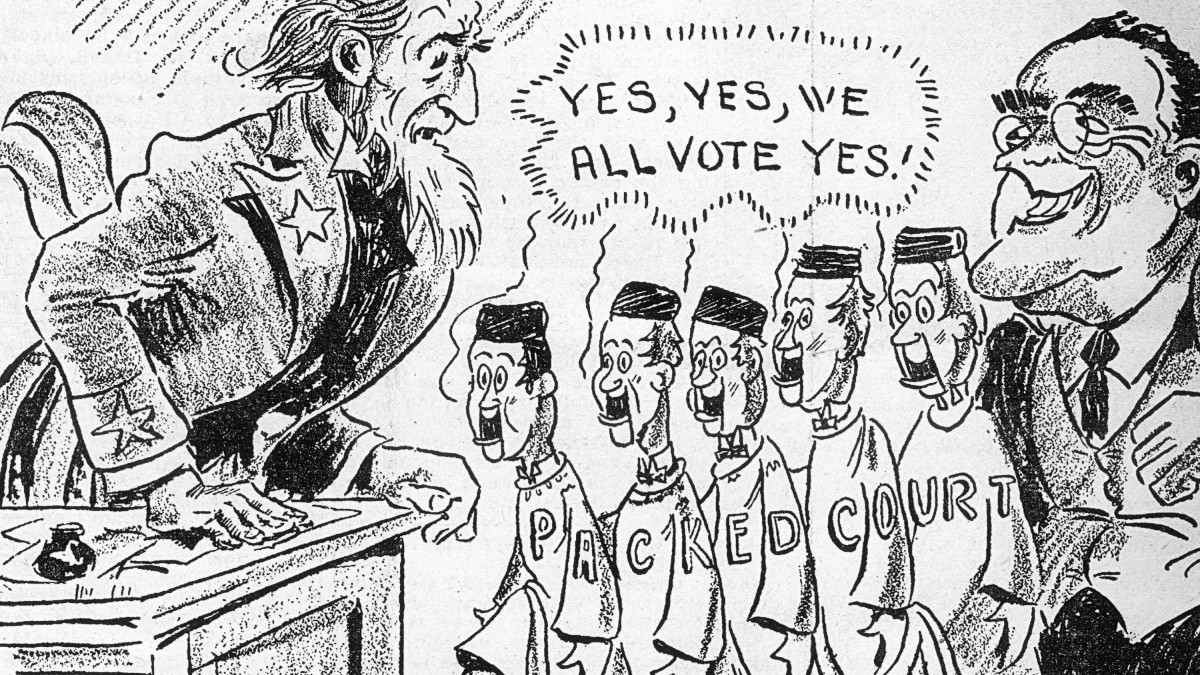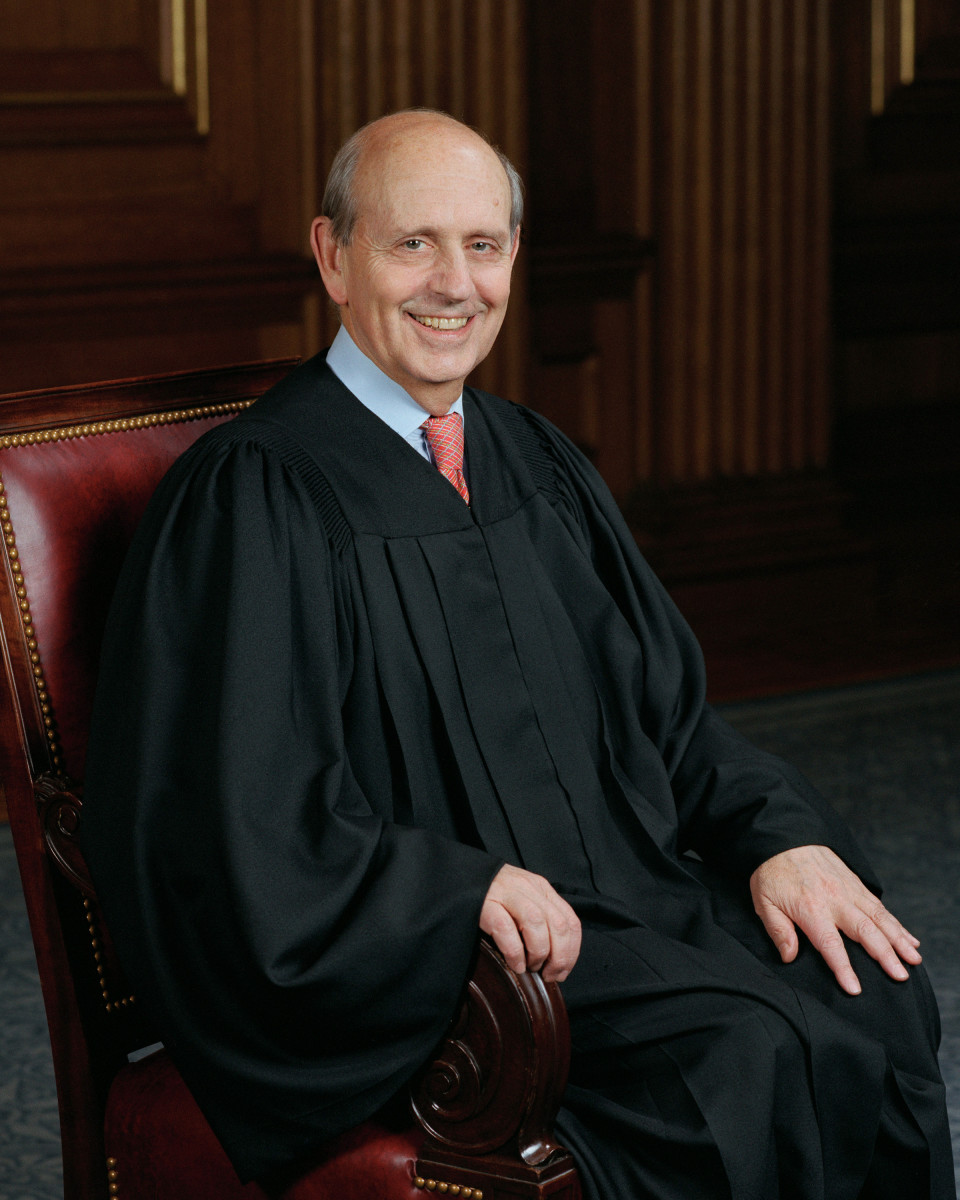ACA - Obamacare Is Constitutional!!! Do You Agree?
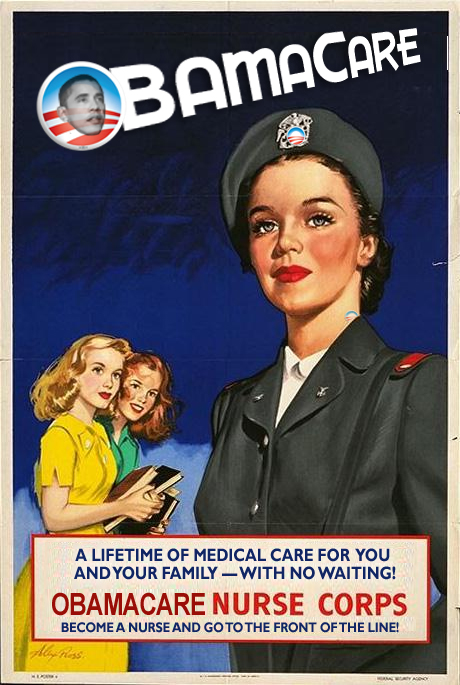
WELL, IT'S OVER ... BUT OF COURSE IT IS NOT!
THE SUPREME COURT HAS RULED in another of its famous 5-4 rulings that the Patient Protection and Affordability Act (Obamacare) is Constitutional because the health insurance mandate penalty can be considered a tax. It was, surprisingly, Chief Justice John Roberts, conservative appointed by President George W. Bush, who concluded this, along with the four liberal justices on the court. To be honest, I am a bit amazed that Justice Anthony Kennedy didn't join with him, making it a 6-3 decision, but he didn't.
The fact that it was Chief Justice Roberts that cast the deciding vote and wrote the majority opinion speaks volumes, in my opinion. It does that because he has been a consistent conservative voice on the court and will counter any argument that might be made about judicial activism and weigh much more heavily toward a reading that what Congress did fell withing the idea of limited government. I suspect strongly that neither Scalia, Alito, nor Thomas thought that to be true, but, I don't know about Kennedy. It will be interesting looking into his reasoning for voting no.
One part of Obamacare was found unconstitutional, though. That was the section concerning the expansion of Medicaid to most poor people and the penalty states would pay if they opted out of it. The penalty would be the loss of ALL Medicaid funding, which the Court held, 9-0 I think, to be unconstitutional. The states may opt-out if they like and only lose the funding associated with the expanded program. I sort of thought that one wouldn't fly, but the unanimous vote is a bit of a surprise.
This vote may change some other minds as well, to which I will address with a poll. That is the strong opposition in America to Obamacare; running consistently about 60% against. This comes from many sources, a significant one being those "who feel Obamacare didn't go far enough!". Others oppose it because 1) they absolutely believe it is unconstitutional, no matter what the Court says, 2) they believed it to be unconstitutional because that was what they had been told or believed the reasoning they had been given, 3) there was simply no need for Obamacare in the first place, or 4) some other reason. It is reason # 2 and possibly 4 that may be most affected by today's ruling as it invalidates what they have heard; Obamacare is, in fact, constitutional. The question is, then, when they are polled again, will they change their vote and support Obamacare? I will be looking forward to finding out, numbers wonk that I am.
LOGIC - A POWERFUL WEAPON WHEN USED BY AND AGAINST THINKING PEOPLE
BUT USELESS AGAINST RWAs AND SOCIAL DOMINATORS. I just read the syllabus of the Supreme Courts decision regarding the Obamacare insurance mandate; in a few swift words, it changed my mind. I was sold on all three arguments the government made supporting the individual mandates, 1) Commerce Clause, 2) Necessary and Proper Clause, and 3) Lay and Collect Taxes. I was pretty certain in my belief about numbers 1 and 3, but so much about 2. Now it is clear to me that the Commerce Clause doesn't and should apply at all, but I am not still not quite sold the Necessary and Proper Clause couldn't work. Of course it was the Lay and Collect taxes, the basis for Social Security and Medicare, that Chief Justice Roberts went to that allowed him let this part of Obamacare stand.
So, what was wrong with the Commerce Clause that I found so appealing? Below is a section from the syllabus, you will see what I mean:
"The Constitution grants Congress the power to "regulate Commerce." Art. I, §8, cl. 3 (emphasis added). The power to regulate commerce presupposes the existence of commercial activity to be regulated. This Court’s precedent reflects this understanding: As expansive as this Court’s cases construing the scope of the commerce power have been, they uniformly describe the power as reaching "activity.", E.g., United States v. Lopez, 514 U. S. 549, 560. The individual mandate, however, does not regulate existing commercial activity. It instead compels individuals to become active in commerce by purchasing a product, on the ground that their failure to do so affects interstate commerce.
Construing the Commerce Clause to permit Congress to regulate individuals precisely because they are doing nothing would open a new and potentially vast domain to congressional authority. Congress already possesses expansive power to regulate what people do. Upholding the Affordable Care Act under the Commerce Clause would give Congress the same license to regulate what people do not do. The Framers knew the difference between doing something and doing nothing. They gave Congress the power to regulate commerce, not to compel it. Ignoring that distinction would undermine the principle that the Federal Government is a government of limited and enumerated powers. The individual mandate thus cannot be sustained under Congress’s power to "regulate Commerce." Pp. 16–27."
If this were a mathematical equation, it would be called "elegant". The two bolded sentences were the light bulbs that turned on, the pieces of logic that fell into place to understand the proper limitation on the Commerce Clause and why it doesn't support the individual mandate.
Note, if the government had not made the taxation idea one of its arguments, which was at best a throwaway line for them for it wasn't something they put much stock in, Chief Justice Roberts would have had to find the individual mandate unconstitutional. While it can't be said Justices haven't been creative in the past, Roberts is certainly not one of the ones who would be a trend setter in this realm; he would not had ventured out to come up with the tax reasoning himself to help the administration out.
WHAT'S A SUPREME COURT SUPPOSED TO DO?
SOME OF THE COMMENTS PROMPTED ME to expand this hub a bit, OK, a lot, further. Even more of an incentive is the insane rhetoric I have been hearing coming from Capital Hill and the media. So, as I have a habit of doing, let me start from the beginning so that I can organize my thoughts and logic better.
Why is there a government?
In my view, it is to carry out the mandate of the Constitution.
What is that mandate?
It is to 1) form a more perfect Union (between States and the the Federal government, 2) establish Justice, 3) ensure domestic Tranquility, 4) provide for the common Defense, 5) promote the general Welfare, and 6) secure the Blessings of Liberty to Ourselves and our Posterity.
How is this mandate to be carried out?
Through the mechanism of a federal government and the various state governments
How is the federal government structured?
In its most basic form, it has an Executive, Legislative, and Judicial Branch; each designed to be a check on the other.
What is the fundamental purpose of each branch?
The Legislative branch, as I see it, is 1) to create the laws necessary and proper to carry out the mandate of the Constitution, 2) act as a check on the Executive Branch's veto, appointment, and war powers, and 3) to act as a check on the rulings of the Supreme Court.
The Executive Branch, as I see it, is 1) to sign into law or veto (a check on the Legislative Branch) laws passed by the Congress, 2) to implement and execute the laws signed by the President, 3) to prosecute foreign policy, 4) appoint Supreme Court justices, 5) enforce decisions of the Supreme Court, and 6) act as head of the military.
The Judiciary Branch, again, as I see it, is, among other things, 1) to arbitrate disputes between States, between States and the Federal government, between citizens and the governments of different States, etc, 2) to arbitrate suits between citizens and the Federal government, 3) to arbitrate cases of federal office abuse, and 4) through Judicial Review, determine if Congress has overstepped its Constitutional authority in cases brought before it for that purpose.
It was for that last purpose for which Obamacare was being seen by the Supreme Court; it was a case for Judicial Review, a practice established by Chief Justice John Marshal in 1803 in Marbury v Madison and opposed by every conservative administration from Thomas Jefferson and Andrew Jackson until Dwight D. Eisenhower, who embraced it; none saw fit to overturn it, however. And it was in this light that I think Chief Justice John Roberts made his decision, i.e., did the "individual mandate" section of the Patient Protection and Affordability Act passed by the Legislative body in furtherance, as they saw it at the time, of the mandate laid out by the Constitution under the Commerce Clause, the Necessary and Proper Clause, the two primary reasons, and yes, the Taxing Authority Clause, a much lesser but necessary part, exceed the limitations placed on Congress by the Constitution? (OK, draw a breath before continuing.) The Taxing Authority as needed, of course, to collect the penalties assessed those individuals who would not purchase health insurance themselves. Before I get to how Roberts can jump to this conclusion, I need cover some other ground first such as why did Chief Justice Roberts go to so much trouble to save Obamacare in the first place, he was a conservative after all, wasn't he?
Well, he was also Chief Justice of the Supreme Court as well and apparently to him, that was much more important in this case. Another Justice, Stephen Breyer, in his book, "Making Our Democracy Work", took great pains to point out the long established tradition of the Court to "interpret statutues in a way that saves them from potential invalidation as unconstitutional." Breyer supported his point with many examples and solid reasoning. It only makes sense and conservatives are very right on this point, the Court is not designed to make law, only interpret it and to determine if Congress exceeded the limitations the Constitution set on it, nothing more; making law is in the exclusive purview of Congress.
Chief Justice Roberts understood both of these longstanding principles, 1) the proper role of the Court and 2) to find every reasonable way not to overturn a statute, for to willy-nilly do so is, in effect, the Court becoming an activist Court and making law instead of Congress. Chief Justice Roberts' paraphrased Justice Breyer by saying in his opinion that "Our permissive reading of these powers is explained in part by a general reticence to invalidate the acts of the Nation’s elected leaders." Having said that, Roberts' also quosted Chief Justice John Marshall in saying, "Our deference in matters of policy cannot, however,become abdication in matters of law. "The powers of the legislature are defined and limited; and that those lim- its may not be mistaken, or forgotten, the constitution is written.", Marbury v. Madison, 1 Cranch 137, 176 (1803). So, Roberts searched for a way to save Obamacare.
He cound not find one in the Commerce Clause for the reasons already mentioned earlier. He also found that the Necessary and Proper Clause fails because Obamacare is not, he says, a derivitive of a "granted power" and, therefore, outside the scope of the Necessary ad Proper Clause. (I haven't read his full reasoning on this and don't really understand it, but will take him at his word for the moment.) Anyway, he had to search elsewhere to try to save Obamacare; he found it in Congress' Enumerated Power to Lay and Collect Taxes.
A MANDATE BECOMES A TAX
CONSERVATIVES ARE MAKING A LOT OF GLEEFUL HAY out of 1) the governments argument that if the Commerce Clause fails, then consider the power to lay and collect Taxes and 2) the fact than Chief Justice John Roberts did just that. On course, all of these talking political heads standing in the hallways of the Senate and House are being disingenuous declaring to the high heavens, beating their hands on their chests, and stamping their feet on the ground telling us the dastardly Democrats lied to us about something everybody knew to be true in the first place, a mandate, no matter how you sugar coat it with terminology with words, is a tax.
It is a tax in the same way the admission you pay to a National Park is a tax, except it is not called a tax, it is called an admission fee and you are "required" to pay it to the government if you want to use the park. If you don't pay it, you can't use the park. The mandate is the same thing, it is a fee to use health services at some point in time, the difference is, the emergency room cannot turn you away, if you choose not to pay at time of service, like they can at the national park. Here the Democrats called it a more political palatable "individual mandate" for those who wanted to use health services for free and have other taxpayers have their taxes increased to pick up the tab.
If fact, many Democrats wanted a "single-payer" system which, in effect, is a national health tax; they wanted to be up front about it. President Obama understood this wasn't going to fly given the political mood in 2008 so he wanted to try to live by one of his campaign promises and work with the Republicans; he took a funding plan from the Republican playbook, one put in place,, backed by, and defended by a Republican governor, Mitt Romney, current Republican presumtive nominee for President. Unlike the rest of Obamacare which Romney can make debate points by arguing it will work for a state but not for a nation, he can't for an "individual mandate". He can't because it is a principle, something that is either right or wrong and doesn't know political boundaries.
Given the hyperbolic comments by the mathematically challenged conservatives saying the Individual Mandate is the "Largest Tax Increase in the History of America", or something similar, I have a question for conservatives. "How can you support a Presidential candidate, Mitt Romney, who is responsible, assuming you buy into your peer's rediculous hype, for the Largest Tax Increase in the History of Massachusetts?"
Therefore, in a predictably unsuccessful effort to compromise with Conservatives, Democrats looked for another rational and found one with the "Commerce" and Necessary and Proper" Clauses. It made sense after all, and for all of the reasons the Democrats, including President Obama and the four progressive Justices on the Supreme Court presented since 2010 through the dissenting opinions delivered by Ginsberg, et. al. Their reasoning in my mind was very solid and I accepted it ... until I read Chief Justice Roberts' logic, and that was more solid by a small margin; it appealed to the part of my pragmatism that leans slightly conservative.
But, just because the individual mandate fails to be Constitutional on the grounds that the Democrats preferred it to be, and this is Roberts' point, it doesn't mean it isn't Constitutional on some other legitimate grounds that are "fairly possible", a legal term, lol, that derives from part of the text in Roberts' opinion:
"The question is not whether that is the most naturalinterpretation of the mandate, but only whether it is a "fairly possible" one. The question is not whether that is the most naturalinterpretation of the mandate, but only whether it is a "fairly possible" one. Crowell v. Benson, 285 U. S. 22, 62 (1932). As we have explained, "every reasonable construction must be resorted to, in order to save a statute from unconstitutionality." Hooper v. California, 155 U. S. 648, 657 (1895)."
This was the test which Roberts' was using when he asked himself the following question,
"Under our precedent, it is therefore necessary to ask whether the Government’s alternative reading of the statute—that it only imposes a tax on those without insurance—is a reasonable one."
Obviously, Chief Justice Roberts thought it was, while his four conservative brethren thought that it was not reasonable to read the statute that way.
The four dessenting conservative justices, besides disagreeing with Roberts' logic, did it in a rather rude, uncourt-like manner. Beyond that, they seem to be hanging their hat on the fact that a "penalty" is not a "tax" and that the statute takes great pains to define the failure to buy health insurance as a penalty. In fact, they used one of the same cites as Chief Justice Roberts did, Crowell v. Benson. Here is the substance of their reasoning:
"In answering that question we must, if "fairly possible," Crowell v. Benson, 285 U. S. 22, 62 (1932), construe the provision to be a tax rather than a mandate-with-penalty, since that would render it constitutional rather than un- constitutional (ut res magis valeat quam pereat). But we cannot rewrite the statute to be what it is not. "‘"[A]l- though this Court will often strain to construe legis- lation so as to save it against constitutional attack, it must not and will not carry this to the point of perverting the purpose of a statute . . ." or judicially rewriting it.’" Commodity Futures Trading Comm’n v. Schor, 478 U. S. 833, 841 (1986) (quoting Aptheker v. Secretary of State, 378 U. S. 500, 515 (1964), in turn quoting Scales v. United States, 367 U. S. 203, 211 (1961)). In this case, there is simply no way, "without doing violence to the fair meaning of the words used," Grenada County Supervisors v. Brogden, 112 U. S. 261, 269 (1884), to escape what Congress enacted: a mandate that individuals maintain minimum essential coverage, enforced by a penalty. "
However, Roberts counters with this: (don't you just love these debates?)
"We thus ask whether the shared responsibility payment [the individual mandate penalty] falls within Congress’s taxing power, "[d]isregarding the designation of the exaction, and viewing its substance and application." United States v. Constantine, 296 U. S. 287, 294 (1935); cf. Quill Corp. v. North Dakota, 504 U. S. 298, 310 (1992) ("[M]agic words or labels" should not "disable an otherwise constitutional levy" (internal quotation marks omitted)); Nelson v. Sears, Roebuck & Co., 312 U. S. 359, 363 (1941) ("In passing on the constitutionality of a tax law, we are concerned only with its practical operation,not its definition or the precise form of descriptive words which may be applied to it" (internal quotation marks omitted)); United States v. Sotelo, 436 U. S. 268, 275 (1978) ("That the funds due are referred to as a ‘penalty’ . . . does not alter their essential character as taxes")."
(After taking a couple of asprin, please come back and continue.) Clearly, the philosophical battleline is drawn. Both sides, Roberts and his fellow conservatives, agree that it is the duty of the court to try to save a statute if possible (Crowell v Benson); they both agree that to do so, the alternative must be "fairly possible" (again Crowell v Benson); where they disagree is if it was "fairly possible" to construe the "penalty" attached to the independent mandate as a tax.
One must wonder why three very conservative Justices saw this question one way, and one very conservative Chief Justice saw it another. I don't consider Kennedy "very" conservative, just conservative. Some would believe, Kennedy, Scalia, Alito, and Thomas were being politicians while Roberts was acting as a true Supreme Court Justice. Personally, I don't buy that. I think it is a philosophical difference on how each approaches their job; approaches that Justice Breyer explains in his book "Making Our Democracy Work". It in brief, some Justices believe decisions should be based ONLY on the original writings surrounding the creation of the Constitution, "strict constructionists" in other words; others believe you need to take precedence into account; still others think you need to bring other factors into their deliberations to reach a judgement they believe our founders had in mind when they set pen to paper ... meaning did the "intent" of the Congressional statute under scrutiny "actually" exceed the limits of their Power which the founders gave them in the Constitution.
JUNE 5, 2013
THE LATEST CNN/ORC NATIONAL SURVEY once again, as it has for three years, shows that a majority of Americans want some sort of Obamacare-type health coverage. In the poll, 35% DO NOT support Obamacare, 16% think Obamacare doesn't go far enough and needs to be stronger, and 46% DO support Obamacare.
As expected, Conservatives once again falsely parade around the 46% result rather than the more correct 35% Against or 60% For national healthcare coverage; but then, that is what politicians do, isn't it, it just happens to be Conservatives this time.
WILL THE POLLS CHANGE?
WILL YOU NOW SUPPORT OBAMACARE BECAUSE THE SUPREME COURT JUST FOUND IT TO BE CONSTITUTIONAL?
LET'S LOOK BEHIND THE POLLS
Did You NOT Support OBAMACARE Because:
DEMOGRAPHIC QUESTION #1
Do you consider yourself closest to a:
DEMOGRAPHIC QUESTION #2
Are you:
© 2012 Scott Belford

